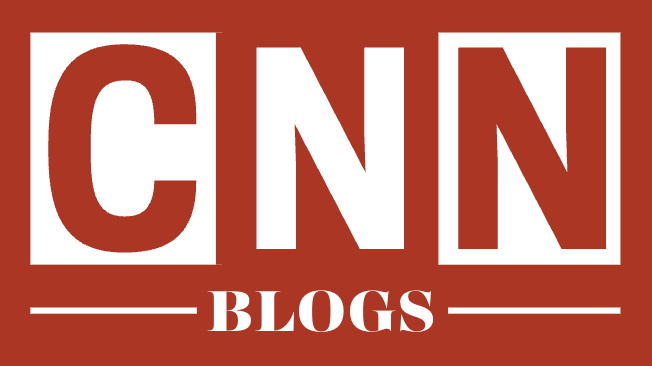Businesses talk about growth like it is a magic trick. Hire the right agency, throw money at campaigns, and wait for leads to roll in. Reality is different. Too many companies spend on “lead gen” without ever asking the hard question: are these leads real opportunities, or just noise in the pipeline?
This is where working with a specialist lead generation agency changes the game. Not the kind that sells vanity metrics, but the kind that connects you with decision-makers who are ready to buy.
In this guide, we break down what a real lead generation strategy looks like, why quality matters more than volume, and how to choose the right partner if you are serious about scaling.
What is Lead Generation and Why Does It Matter?
Lead generation is the process of attracting and converting potential buyers into people who show genuine interest in your product or service. That sounds simple, but in practice it is the hardest part of growing a business.
A good strategy brings consistency. It means your sales team spends time on qualified conversations instead of chasing dead ends. It means your marketing budget goes toward channels that deliver. And it means you can plan growth with confidence because opportunities keep coming.
In short, lead generation is not optional. It is the system that keeps your business alive.
B2B Lead Generation: Playing a Different Game
Selling software, professional services, or high-ticket solutions is not the same as selling trainers online. B2B buyers take longer to decide. They research. They compare. They involve multiple stakeholders before signing anything.
That is why B2B lead generation requires a tailored approach. It is about precision targeting, content that educates, and nurturing campaigns that keep you front of mind during long sales cycles. You cannot brute force it with volume. You need relevance, timing, and trust.
Signs of a Weak Lead Generation Strategy
You can usually spot when your strategy is not working. Common signs include:
- A full CRM that never translates into deals.
- Sales teams complaining that marketing delivers “junk leads.”
- Campaigns that look busy but produce little revenue.
- Heavy reliance on cold lists with no engagement.
If this sounds familiar, you do not have a lead generation problem. You have a quality problem. And quality is exactly what a focused lead generation agency is built to deliver.
What a Strong Lead Generation Agency Provides
A credible agency does not hide behind jargon. They show you where opportunities come from, how leads are qualified, and what percentage of them convert. Here is what you should expect:
- Clear targeting. Campaigns built on an ideal customer profile, not guesswork.
- Multi-channel strategy. From LinkedIn outreach to paid campaigns, using the right mix to reach your buyers where they spend time.
- Personalised messaging. Copy that speaks to pain points and positions your solution as the answer.
- Nurturing workflows. Automated but human-focused follow-ups that move leads through the funnel.
- Real accountability. Transparent reporting that connects activities with pipeline growth.
The Role of Content in B2B Lead Generation
Content is not fluff. It is the fuel that powers your campaigns. Whitepapers, case studies, videos, and blog posts create trust before your sales team ever makes contact. Buyers want proof, and content provides it.
But here is the catch. Content only works when it is tied directly to your lead generation goals. Random blog posts will not move the needle. A targeted eBook on solving your industry’s biggest challenge will. That is the difference between “content marketing” and content that generates leads.
Paid Ads and PPC in Lead Generation
Organic growth takes time. Paid campaigns accelerate it. Pay-per-click and paid social campaigns are powerful tools when managed properly. The danger comes when budgets are wasted on broad targeting or bland creative.
The right lead generation agency uses paid channels to amplify campaigns, not replace them. They test audiences, refine messaging, and use conversion data to optimise spend. The result is consistent, predictable flow instead of random spikes of traffic.
Why Quality Beats Quantity
It is tempting to obsess over the number of leads generated. But a hundred unqualified leads are worthless if none convert. Ten highly qualified leads who actually need your product are worth far more.
This is why modern B2B lead generationfocuses on quality above all else. Sales teams need conversations with decision-makers who have budget, authority, and intent. Anything else wastes time and damages morale.
How to Choose the Right Lead Generation Agency
Not all agencies are equal. When choosing a partner, ask:
- Do they have experience in your industry?
- Can they explain their process for qualifying leads?
- Do they provide transparent reporting?
- Can they demonstrate a track record of converting leads into revenue?
- Will they align closely with your sales team to ensure goals are consistent?
The right agency will not just promise leads. They will show you how those leads connect to revenue. They will become a growth partner, not just another vendor.
Avoiding Common Mistakes
Too many businesses hand over budget to agencies without setting clear expectations. This creates a cycle of poor performance and finger-pointing. Avoid these pitfalls:
- Chasing lead numbers instead of conversions.
- Ignoring the importance of nurturing leads through the funnel.
- Overlooking alignment between marketing and sales.
- Failing to revisit and refine targeting criteria.
The difference between a wasted spend and a winning campaign is often in the details.
The Future of Lead Generation
The future is data-driven, automated where it helps, but always human at the core. AI tools can help identify patterns and scale campaigns. But decision-making, creativity, and relationship building still belong to people.
That is why businesses that combine technology with a strong lead generation agency will always win. They use tools to improve efficiency, but never lose sight of the fact that B2B buyers want real conversations with real people.
Conclusion
Lead generation is not a side project. It is the foundation of growth. Without it, pipelines stall and revenue goals get missed. With it, sales teams thrive, marketing spend becomes measurable, and growth feels predictable.
If you are serious about scaling, you need more than a scattershot approach. You need a partner who can build a system that delivers quality leads consistently. That means working with an experienced lead generation agency that understands the complexity of B2B lead generation and knows how to turn interest into opportunity.
The difference between being stuck in neutral and accelerating growth comes down to one decision: choosing the right partner to own your lead generation strategy.



